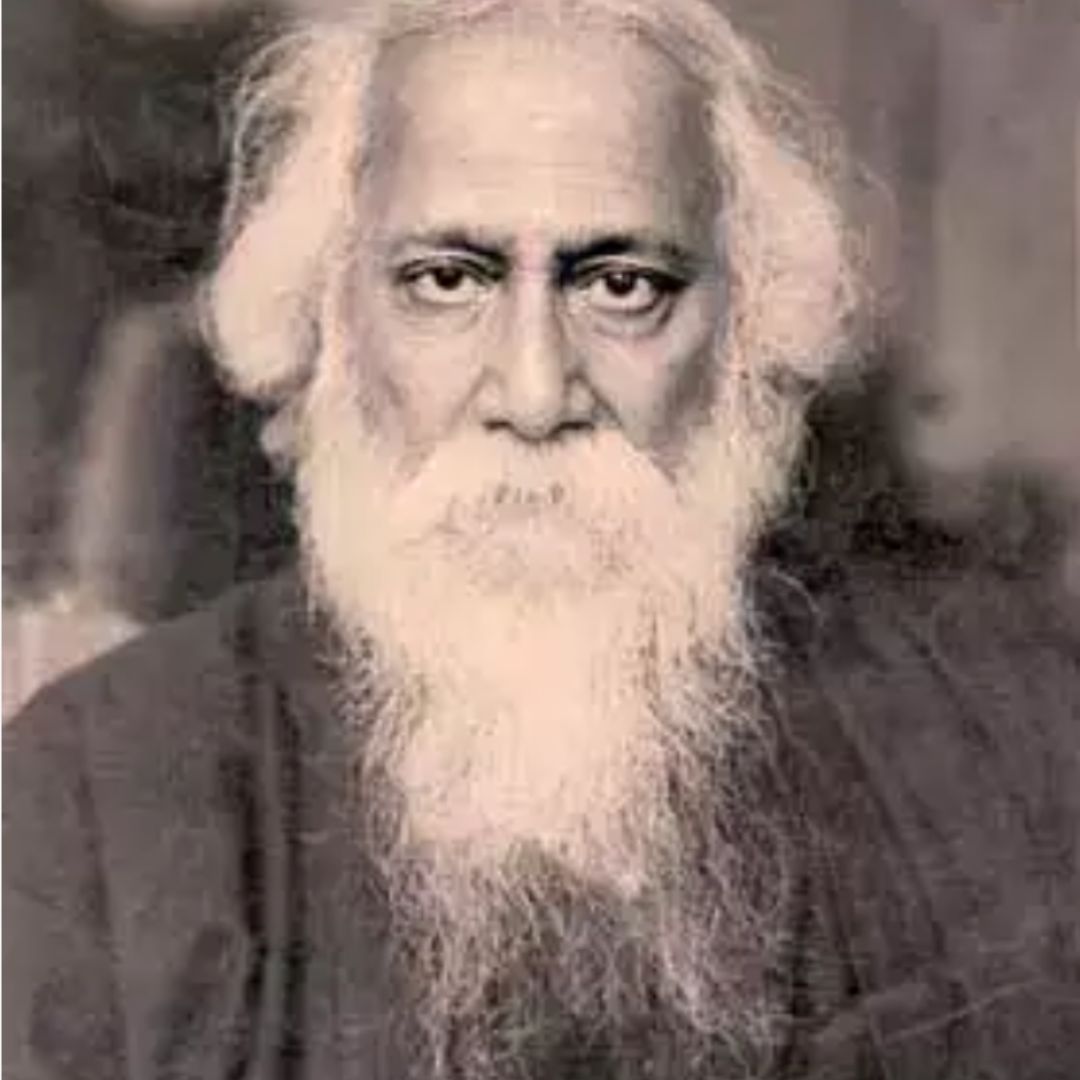Rabindranath Tagore (GURUDEV), literary and artistic genius, social reformer, first non-European with Nobel Prize in Literature !!!
Rabindranath Tagore, often referred to as Gurudev, was an inspiring figure in Indian literature, music, and art. Born on May 7, 1861, in Kolkata, he was the youngest son of Debendranath Tagore, a leader of the Brahmo Samaj, a reformist of Hindu movement, new religious light in nineteenth-century in Bengal and which attempted a revival of the ultimate basis of Hinduism as laid down in the Upanishads.

Tagore from a typical Bengali family and received a diverse education both in India and abroad. He was educated at home; and although at seventeen he was sent to England for formal schooling, he did not finish his studies there. In his mature years, other than his many-sided literary activities, he managed the family estates, a project which brought him into close touch with common humanity and increased his interest in social reforms.
He also started an experimental school at Shantiniketan, West Bengal, India where he tried his Upanishadic ideals of education. Visva-Bharati a central public university, located in Shantiniketan. It was also founded by Rabindranath Tagore who called it Visva-Bharati, which means the communion of the world with India. Until independence it was a college, soon after independence, the institution was given the status of a central university in 1951 by an act of the Parliament.

He wrote poetry, short stories, novels, essays, plays, and songs. His works often explored themes such as love, nature, spirituality, and the human condition.
Tagore had early success as a writer in his native Bengal. With his translations of some of his poems he rapidly became known in the West. In fact, his fame attained a luminous height, taking him across continents on lecture tours and tours of friendship. For the world he became the voice of India’s spiritual heritage.
Notably, he became the first non-European to be awarded the Nobel Prize in Literature in 1913 for his collection of poems titled “Gitanjali”. The Nobel Committee recognized his “profoundly sensitive, fresh and beautiful verse” and his role in bringing Indian literature to the forefront of global attention.
Although Tagore wrote successfully in all literary genres, he was first a poet. Among his fifty and odd volumes of poetry are Manasi (1890), Sonar Tari (1894), Gitanjali (1910), Gitimalya (1914), and Balaka (1916).
The English renderings of his poetry, which include The Gardener (1913), Fruit-Gathering (1916), and The Fugitive (1921), do not generally correspond to volumes in the original Bengali; and in spite of its title, Gitanjali: Song Offerings (1912), the most acclaimed of them, contains poems from other works besides its namesake.
Tagore’s major plays are Raja (1910), Dakghar (1912), Achalayatan (1912), Muktadhara (1922), and Raktakaravi (1926).
He is the author of several volumes of short stories and several novels, among them Gora (1910), Ghare-Baire (1916), and Yogayog (1929). Besides these, he wrote musical dramas, dance dramas, essays of all types, travel diaries, and two autobiographies, one in his middle years and the other shortly before his death in 1941.
Tagore was not only a literary and artistic genius but also a social reformer and a prominent voice against British colonialism. He was deeply involved in the Indian nationalist movement and used his influence to advocate for independence and social change. His contribution and thought in establishing an experimental school, Santiniketan, later grew into Visva-Bharati University, emphasizing the importance of a holistic education rooted in Indian culture and values.
Rabindranath Tagore’s legacy continues to inspire generations of writers, artists, and thinkers around the world. His profound insights into the human condition, his celebration of beauty and spirituality, and his commitment to social reform remain as relevant today as they were during his lifetime.
Rabindranath Tagore died on August 7, 1941

Interesting Fact, On 25 March 2004, Tagore’s Nobel Prize was stolen from the safety vault of the Visva-Bharati University, along with several other of his belongings. On 7 December 2004, the Swedish Academy decided to present two replicas of Tagore’s Nobel Prize, one made of gold and the other made of bronze, to the Visva-Bharati University.
A famous line by Rabindranath Tagore
#teamanswerwala
Source:- Various webpages on open internet and managed by expert team.
Give your views on feedback@answerwala.com.

